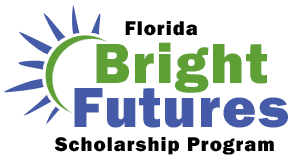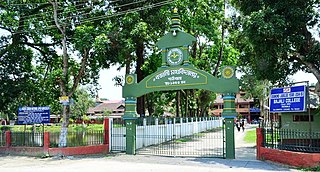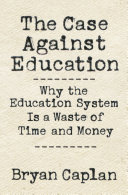Related Research Articles
An academic degree is a qualification awarded to a student upon successful completion of a course of study in higher education, usually at a college or university. These institutions often offer degrees at various levels, usually divided into undergraduate and postgraduate degrees. The most common undergraduate degree is the bachelor's degree, although some educational systems offer lower-level undergraduate degrees such as associate and foundation degrees. Common postgraduate degrees include master's degrees and doctorates.
A bachelor's degree or baccalaureate is an undergraduate academic degree awarded by colleges and universities upon completion of a course of study lasting three to six years. The two most common bachelor's degrees are the Bachelor of Arts (BA) and the Bachelor of Science. In some institutions and educational systems, certain bachelor's degrees can only be taken as graduate or postgraduate educations after a first degree has been completed, although more commonly the successful completion of a bachelor's degree is a prerequisite for further courses such as a master's or a doctorate.

Education in the Netherlands is characterized by division: education is oriented toward the needs and background of the pupil. Education is divided over schools for different age groups, some of which are divided in streams for different educational levels. Schools are furthermore divided in public, special (religious), and general-special (neutral) schools, although there are also a few private schools. The Dutch grading scale runs from 1 to 10 (outstanding).

Undergraduate education is education conducted after secondary education and before postgraduate education. It typically includes all postsecondary programs up to the level of a bachelor's degree. For example, in the United States, a student pursuing an associate or bachelor's degree is known as an undergraduate student while a student pursuing a master's or doctoral degree is a graduate student. Upon completion of courses and other requirements of an undergraduate program, the student would earn the corresponding degree. In some other educational systems, undergraduate education is postsecondary education up to and including the level of a master's degree; this is the case for some science courses in Britain and some medicine courses in Europe.
An associate degree or associate's degree is an undergraduate degree awarded after a course of post-secondary study lasting two to three years. It is a level of academic qualification above a high school diploma and below a bachelor's degree.
A Bachelor of Education is an undergraduate professional degree which prepares students for work as a teacher in schools. In some countries such as Tanzania and Kenya, additional tasks like field work and research are required in order for the student to be fully qualified to teach. It may also be accompanied with or followed by tests for licenses or certifications required for teachers in some areas.

Bright Futures is a scholarship program in the state of Florida. It is funded by the Florida Lottery and was first started in 1997.
An engineer's degree is an advanced academic degree in engineering which is conferred in Europe, some countries of Latin America, North Africa and a few institutions in the United States. The degree may require a thesis but always requires a non-abstract project.
In contract theory, signalling is the idea that one party credibly conveys some information about itself to another party.
Business education is a branch of education that involves teaching the skills and operations of the business industry. This field of education occurs at multiple levels, including secondary and higher education

Joshua David Angrist is an Israeli–American economist and Ford Professor of Economics at the Massachusetts Institute of Technology. Angrist, together with Guido Imbens, was awarded the Nobel Memorial Prize in Economics in 2021 "for their methodological contributions to the analysis of causal relationships".

Bhattadev University offers Bachelor of Arts, Bachelor of Science, Bachelor of Commerce, Master of Arts and Master of Science courses. It was upgraded from Bajali College by Bhattadev University Act, 2017 which was passed by the Governor of Assam on 7 September 2017.
Education economics or the economics of education is the study of economic issues relating to education, including the demand for education, the financing and provision of education, and the comparative efficiency of various educational programs and policies. From early works on the relationship between schooling and labor market outcomes for individuals, the field of the economics of education has grown rapidly to cover virtually all areas with linkages to education.
In sociology, academic capital is the potential of an individual’s education and other academic experience to be used to gain a place in society. Much like other forms of capital, academic capital doesn't depend on one sole factor—the measured duration of schooling—but instead is made up of many different factors, including the individual's academic transmission from his/her family, status of the academic institutions attended, and publications produced by the individual.
The higher education bubble in the United States is the possibility that excessive investment in higher education could have negative repercussions in the broader economy. Although college tuition payments are rising, the supply of college graduates in many fields of study is exceeding the demand for their skills, which aggravates graduate unemployment and underemployment while increasing the burden of student loan defaults on financial institutions and taxpayers. Moreover, the higher education bubble might be even more serious than load of student debts. Without safeguards in place for funding and loans, the government risks creating a moral hazard in which schools charge students expensive tuition fees without offering them marketable skills in return. The claim has generally been used to justify cuts to public higher education spending, tax cuts, or a shift of government spending towards law enforcement and national security. There is a further concern that having an excess supply of college graduates exacerbates political instability, historically linked to having a bulge in the number of young degree holders.
Educational inflation is the increasing educational requirements for occupations that do not require them. Credential inflation is the increasing overqualification for occupations demanded by employers.

Sholeh Maani is a New Zealand economics academic. She is a full professor at the University of Auckland.
Nicole M. Fortin is a Professor in the Vancouver School of Economics (VSE) at University of British Columbia, where she obtained her Ph.D. in Economics. Before moving to Vancouver, B.C. in 1999, Fortin taught at Université de Montréal for ten years in her hometown. She was the President of the Canadian Women Economic Network (CWEN) in 2013–2014. Her research focus is placed on three main themes, including the linkage between labour market institutions and wage inequality, issues related to the economic progress of gender equality, as well as contributions to decomposition methods. Notably, Fortin contributed to the ground-breaking research presented in the 2015 World Happiness Report by examining how various factors impact feelings of happiness for individuals, and societal well-being overall, across the globe.
Higher education in the United States is an optional stage of formal learning following secondary education. Higher education, also referred to as post-secondary education, third-stage, third-level, or tertiary education occurs most commonly at one of the 4,360 Title IV degree-granting institutions in the country. These may be public universities, private universities, liberal arts colleges, community colleges, or for-profit colleges. Learning environments vary greatly depending on not only the type of institution, but also the different goals implemented by the relevant county and state.

The Case Against Education: Why the Education System Is a Waste of Time and Money is a book written by libertarian economist Bryan Caplan and published in 2018 by Princeton University Press. Drawing on the economic concept of job market signaling and research in educational psychology, the book argues that much of higher education is very inefficient and has only a small effect in improving human capital, contrary to the conventional consensus in labor economics.
References
- ↑ Russ Roberts. "Bryan Caplan on College, Signaling and Human Capital". Liberty Fund Inc. Retrieved 2022-07-24.
- ↑ Jaeger, David A. and Marianne E. Page (1996) Degrees Matter: New Evidence on Sheepskin Effects in the Returns to Education. The Review of Economics and Statistics Vol. 78, No. 4, pp. 733-740 JSTOR: 2109960
- ↑ Hungerford, T. and Solon, G., (1987). Sheepskin effects in the returns to education. The Review of Economics and Statistics, pp.175-177. JSTOR: 1937919
- ↑ Caplan, B. (2018). The Case Against Education. Princeton University Press. ISBN 978-0-691-17465-5. Pages 97-102 and footnotes.